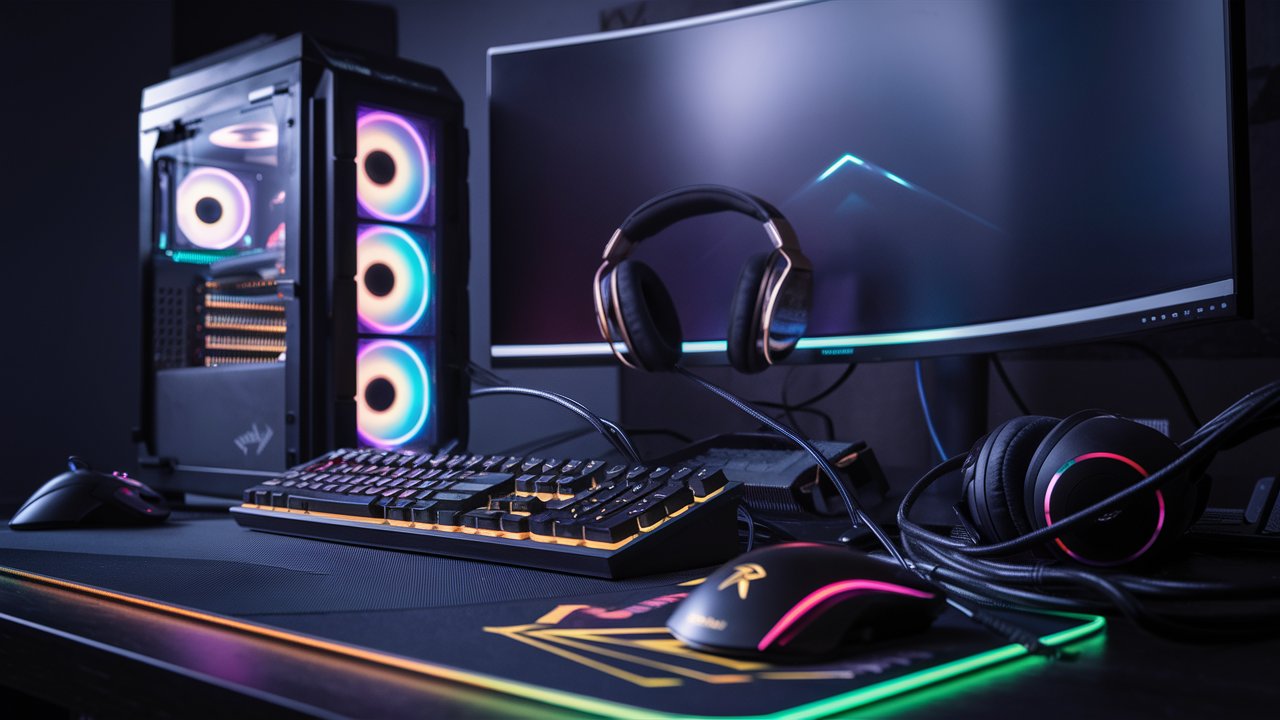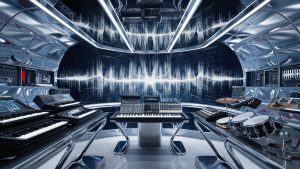Table of Contents
Introduction to Gaming PCs
What is a Gaming PC? Essentially, a is a personal computer designed specifically for playing video games. Unlike regular PCs, gaming PCs come equipped with powerful hardware capable of running the latest games at high settings. Importantly, gaming PCs have become a cornerstone of modern gaming, offering superior performance and customization options compared to gaming consoles Chrome Music Lab.
Components of a Gaming PC
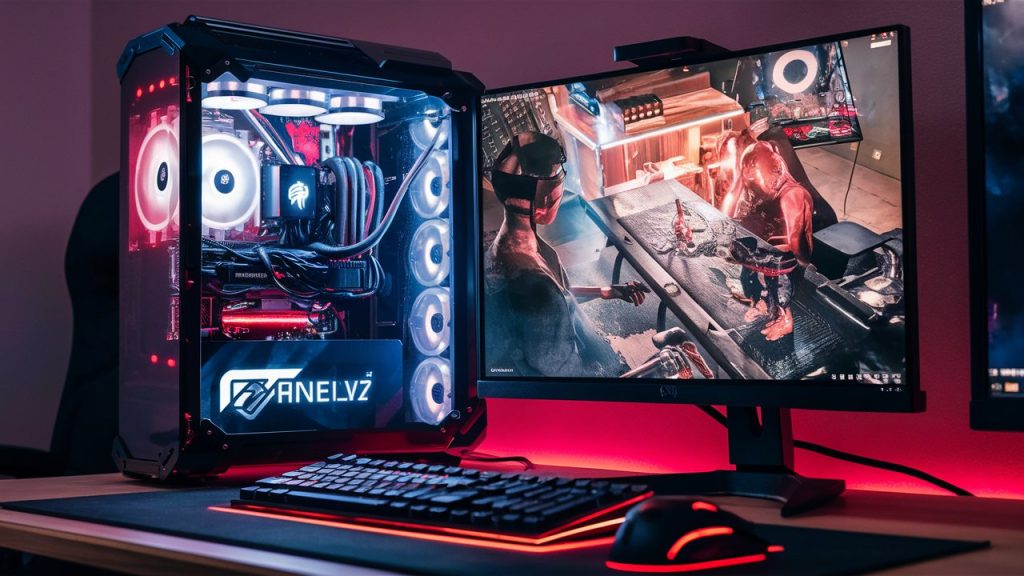
Overview of Essential Components
When discussing s, it’s crucial to understand the key components that make up these powerful machines. Moreover, knowing what each part does helps in making informed decisions whether you’re building or buying a gaming PC.
Central Processing Unit (CPU)
The CPU is the brain of your . Therefore, it’s responsible for processing all instructions from your software and games. A powerful CPU can significantly enhance gaming performance, especially in CPU-intensive games.
Graphics Processing Unit (GPU)
Arguably the most important component in a, the GPU handles rendering images, animations, and videos. Consequently, a high-quality GPU is essential for smooth gameplay and stunning visuals.
Memory (RAM)
RAM is crucial for running games smoothly. It stores data temporarily for quick access. Generally, more RAM means better multitasking and faster performance during gaming sessions.
Storage (HDD/SSD)
Storage is where all your games and data are stored. While HDDs offer more space for less money, SSDs provide faster load times, which can make a significant difference in gaming.
Power Supply Unit (PSU)
The PSU supplies power to all components in your . It’s important to choose a reliable PSU to ensure stable performance and avoid potential damage to your components.
Motherboard
The motherboard is the backbone of your , connecting all components and allowing them to communicate with each other. Selecting a compatible motherboard is essential for a stable and efficient system.
Choosing the Right Gaming PC
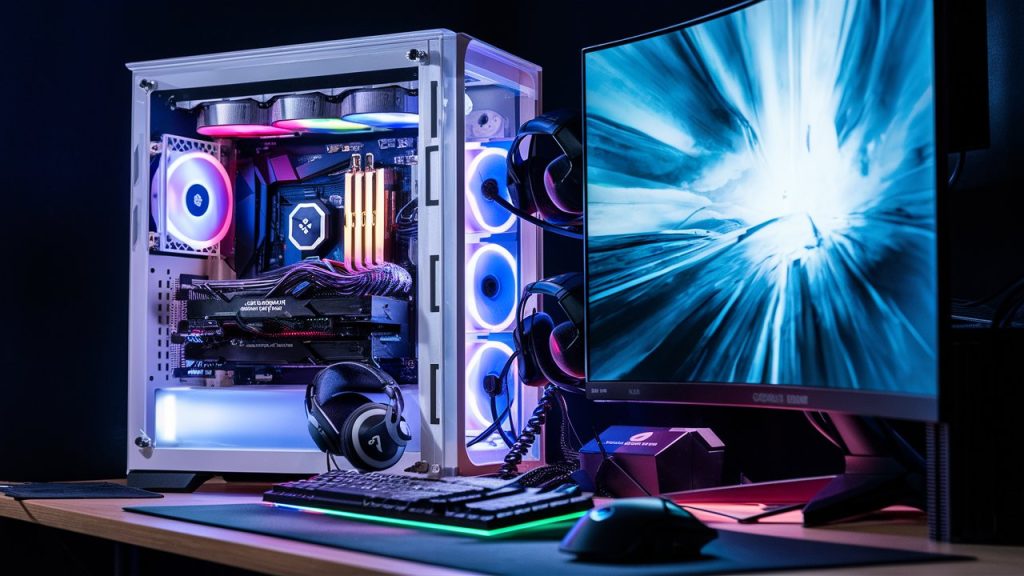
Assessing Your Gaming Needs
First and foremost, determine what type of games you want to play. High-end s are necessary for AAA titles, but casual gamers might not need such powerful hardware.
Budget Considerations
Budget plays a significant role in your choice. While it’s tempting to go for the most powerful options, it’s essential to find a balance between performance and cost.
Pre-built vs. Custom-built PCs
Pre-built PCs offer convenience, but custom-built PCs allow for personalization and potentially better performance for the price. Weigh the pros and cons of each to decide which suits you best.
Top Brands
Overview of Popular Brands
Several brands are renowned for their s. Notably, these brands offer reliable performance and excellent customer support.
Alienware
Alienware is famous for its high-end s with cutting-edge designs and top-notch performance.
ASUS ROG
ASUS ROG (Republic of Gamers) combines powerful hardware with sleek designs, making it a favorite among gamers.
MSI
MSI is known for its robust gaming laptops and desktops, offering great performance and build quality.
HP Omen
HP Omen series provides high-performance s at various price points, catering to different gaming needs.
CyberPowerPC
CyberPowerPC offers customizable gaming PCs, allowing users to build systems tailored to their specific requirements.
Building Your Own Gaming PC
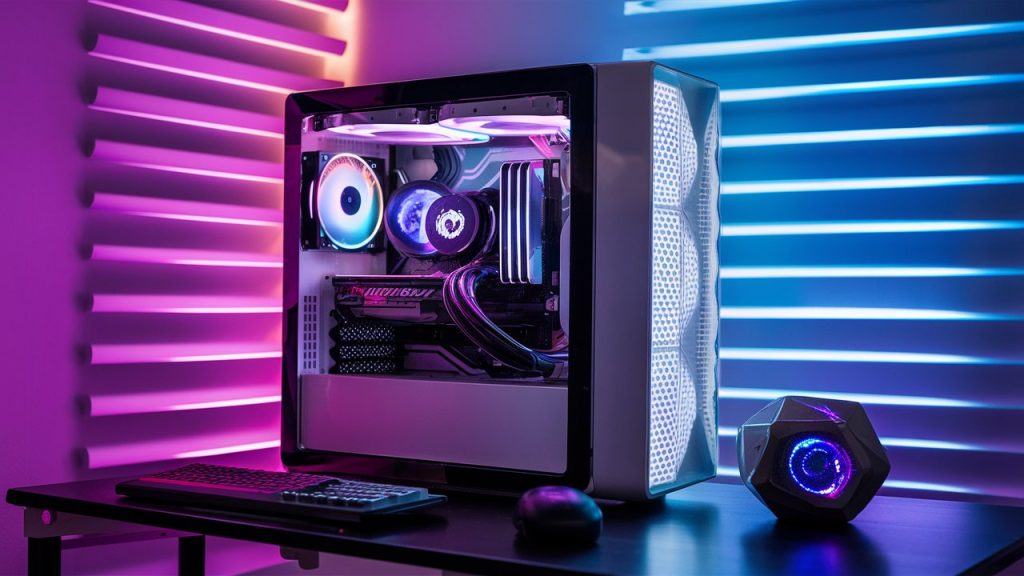
Benefits of Building Your Own PC
Building your own can be incredibly rewarding. It allows for complete customization and often provides better performance for the cost.
Step-by-Step Guide to Building a
Start by selecting compatible components. Then, follow a detailed guide to assemble your PC step by step, ensuring all parts are correctly installed.
Selecting Compatible Components
Compatibility is key. Use online tools and resources to check component compatibility, ensuring everything works together seamlessly.
Gaming PC Performance Optimization
Overclocking the CPU and GPU
Overclocking can boost performance, but it’s essential to understand the risks and follow safe practices to avoid damaging your hardware.
Cooling Solutions
Effective cooling is crucial for maintaining performance and longevity. Consider investing in quality cooling systems, such as liquid coolers or high-performance fans.
Regular Maintenance
Regularly clean your and update drivers to keep it running smoothly. Proper maintenance can prevent many common issues and prolong the life of your PC.
Gaming PC Accessories
Must-Have Accessories
Enhance your gaming experience with essential accessories.
Gaming Monitors
A good gaming monitor can make a huge difference. Look for high refresh rates and low response times for the best experience.
Keyboards and Mice
Gaming keyboards and mice offer better performance and comfort, often featuring customizable keys and enhanced ergonomics.
Headsets
Quality headsets provide immersive sound and clear communication, crucial for both single-player and multiplayer games.
Controllers
For certain games, controllers can offer a more comfortable and intuitive experience than a keyboard and mouse.
VR Gaming and Gaming PCs
Compatibility with VR Systems
Ensure your meets the requirements for VR gaming. Powerful GPUs and adequate RAM are essential for a smooth VR experience.
Required Specifications
Check the specifications of VR systems like Oculus Rift or HTC Vive to ensure your PC can handle VR gaming.
Popular VR Games
Explore popular VR games and experiences that can take full advantage of your gaming PC’s capabilities.
Streaming and Gaming PCs
Importance of a Powerful PC for Streaming
Streaming requires additional resources. Therefore, a powerful is essential for smooth, high-quality streaming.
Software for Streaming
Popular streaming software like OBS and XSplit can help you broadcast your gameplay to platforms like Twitch and YouTube.
Tips for Optimizing Streaming Quality
Ensure your internet connection is stable and fast. Additionally, optimize your streaming settings to balance quality and performance.
Gaming PC vs. Gaming Consoles
Comparing Performance
Gaming PCs generally offer superior performance and customization options compared to consoles.
Cost Considerations
While s can be more expensive initially, they offer better value in the long run due to upgradeability and versatility.
Game Availability
Although consoles have exclusive titles, s provide access to a vast library of games, including PC exclusives and indie titles.
Future Trends in Gaming PCs
Upcoming Technologies
Stay ahead of the curve by keeping an eye on upcoming technologies like ray tracing, AI enhancements, and faster storage solutions.
Predictions for the Future of Gaming PCs
As technology advances, s will continue to evolve, offering even more power and capabilities.
Troubleshooting Common Issues in Gaming PCs
Common Problems and Solutions
Learn to identify and fix common issues such as overheating, crashes, and performance drops.
Support and Resources
Utilize online forums, manufacturer support, and community resources to find solutions and get help with any issues you encounter.
Upgrading Your
Signs It’s Time to Upgrade
Noticeable performance drops and inability to run new games smoothly are signs it’s time for an upgrade.
Which Components to Upgrade First
Focus on upgrading the GPU and CPU first, as these components have the most significant impact on gaming performance.
Cost vs. Performance
Evaluate the cost of upgrades versus the performance benefits to ensure you get the best value for your investment.
Budget-Friendly Gaming PCs
Finding Affordable Options
Research and compare budget-friendly s that offer good performance without breaking the bank.
Best Budget Gaming PCs
Explore reviews and recommendations to find the best budget s on the market.
Tips for Saving Money
Consider building your own PC, buying used components, or waiting for sales to save money on your .
Gaming PC Safety and Security
Protecting Your PC from Malware
Install reputable antivirus software and keep your system updated to protect against malware and other security threats.
Physical Security Tips
Ensure your gaming PC is in a secure location to prevent physical damage or theft.
Conclusion
In conclusion, investing in a can significantly enhance your gaming experience. Whether you choose to buy a pre-built system or build your own, understanding the components and their roles is essential. Moreover, optimizing performance and maintaining your PC can ensure it remains a powerful gaming machine for years to come. So, why wait? Dive into the world of and take your gaming to the next level!
FAQs
How much should I spend on a gaming PC?
It depends on your gaming needs. A decent can cost anywhere from $800 to $2000, with high-end systems costing even more.
Can I upgrade a pre-built gaming PC?
Yes, most pre-built gaming PCs can be upgraded, but it’s essential to check compatibility and warranty conditions.
Is building a gaming PC difficult?
Building a gaming PC requires some technical knowledge, but many online guides and resources can help you through the process.
What’s the difference between SSD and HDD for gaming?
SSDs offer faster load times and better performance, while HDDs provide more storage space for a lower cost.
How do I keep my gaming PC cool?
Regularly clean dust from your PC, ensure proper ventilation, and consider using additional cooling solutions like liquid coolers or extra fans.
